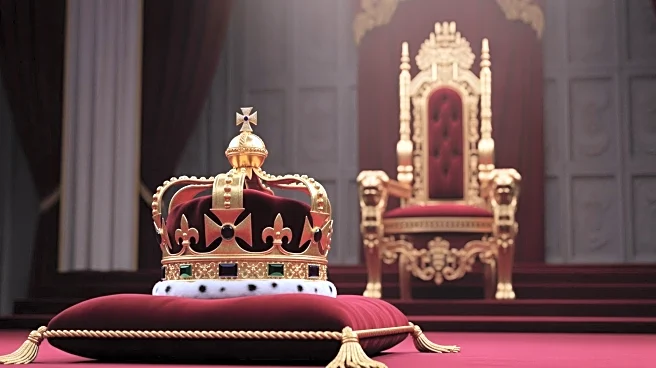What's Happening?
Prince Andrew has been stripped of his royal titles and privileges, including the Duke of York title, following revelations about his association with Jeffrey Epstein. As a result, Andrew will now be known
as Andrew Mountbatten Windsor and is expected to bow to his daughters, Princess Beatrice and Princess Eugenie, who retain their princess titles. This change comes after King Charles decided to remove Andrew from his 30-room mansion, Royal Lodge, and strip him of his titles, marking a significant shift in his status within the royal family.
Why It's Important?
The decision to strip Andrew of his titles reflects the royal family's efforts to distance itself from scandals and maintain its reputation. This move underscores the monarchy's prioritization of institutional integrity over individual loyalty, setting a precedent for handling controversies involving royal members. The impact on Andrew's public image is profound, as he navigates life without the privileges associated with his former status. This development may influence public perception of the royal family and its approach to accountability and transparency.
What's Next?
Andrew's future within the royal family remains uncertain, as he adjusts to his new status and the implications of his daughters outranking him. The royal family may continue to address public concerns and manage its image in light of this decision. Observers will likely watch for any further actions by King Charles to reinforce the monarchy's stance on accountability and the consequences of scandal.
Beyond the Headlines
The situation highlights the ethical and cultural dimensions of royal protocol and the challenges of maintaining tradition in the face of modern controversies. It raises questions about the balance between personal relationships and institutional responsibilities within the monarchy. The decision may also influence public discourse on the role of the royal family in contemporary society and its ability to adapt to changing expectations.











